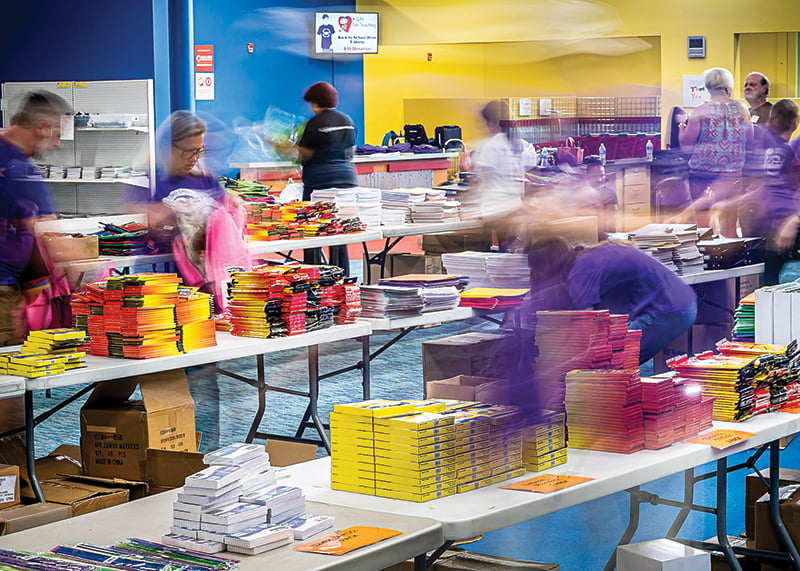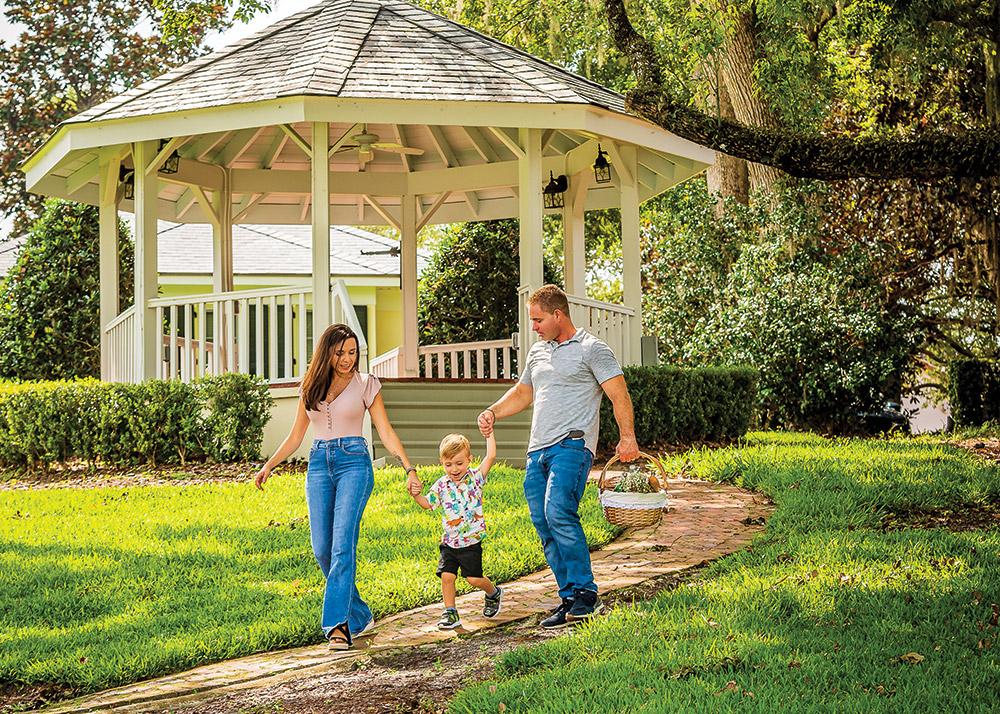Staying Safe: Preparing for Hurricane Season 2022
“Don’t be scared, be prepared.”
Whether you live on the coast or central Florida, hurricane season has arrived. The season runs from June 1 through November 30, with the peak falling between mid-August and late October.
The weather experts at NOAA’s Climate Prediction Center, a National Weather Service division, predict an above-average hurricane season in 2022, making this our seventh consecutive above-average hurricane season. NOAA’s outlook for the 2022 Atlantic hurricane season predicts a 65 percent chance of an above-normal season.
Bryan Karrick, the chief meteorologist at Spectrum News 13 Orlando, shares his top tips for being prepared before, during, and after a hurricane to keep your home and loved one’s safe.
Before the Storm
Make a Plan
“The first thing you want to do is to be prepared and don’t be scared,” explains Karrick. “Prepare in advance so that you’re ready to go.”
This preparation includes creating an evacuation plan and reviewing it with your family in advance, including a common meeting place or a point of contact for all family members. If you have pets, plan for their evacuation.
Create a Hurricane Kit
“You need a good hurricane kit,” says Karrick. “This includes supplies like batteries, flashlights, water, enough food and bottled water for five days per person, and a first aid kit, just in case. And don’t forget to withdraw cash. If the electricity goes out, you might not use your credit cards. Having cash on hand is important.”
Other important items would be a portable radio, extra batteries, non-perishable food, cash, blankets, clothing, and toiletries.
Generators, Gasoline, and Cell Phones
It’s essential to run your generator before a storm hits the area. Keep in mind that it’s dangerous to place generators inside any structure, including garages, carports, and sheds. Instead, put the generator at least 20 feet away from your home, downwind away from open doors, windows, and vents.
You need to make sure you have enough gasoline on hand to run the generator and for use if gas stations are closed. “You want to make sure you fill your car with gas and have that extra can or two of gas stored for emergencies.”
Charge your cell phones before the storm and be sure to conserve usage. Be sure to turn off your phones to conserve the battery in case of emergency.
Securing your Yard
Trim large trees, shrubs, and palm trees. Pick up your yard and eliminate anything that the wind can pick up. Bring all outside patio furniture, potted plants, bikes, and toys indoors.
Insurance Policies, Inventory, and Important Papers
“A good thing to do before a storm is to create an inventory of your belongings for insurance. If you take a video of your belongings or have an actual physical list, this will come in handy in making an insurance claim. Make sure you have all of your important papers in one waterproof place.”
Another tip is to review your policy to make sure that it includes flood insurance.
During the Storm
Stay Safe, Stay Indoors
“At this point, you’ve gathered the family and have gone over your plans,” says Karrick. “Make sure you have something like the Spectrum News app, which will come in handy if you lose power. You’ll need some way of knowing what’s going on, and you can watch us live in the palm of your hand. Our weather experts at News 13 will talk you calmly through the storm.”
Do not go outside when the storm settles down. “When the center, the eye of a hurricane, is over us, it’s sunny, and it calms down. But you’ve got the back end of that hurricane still to come, which lulls people into thinking they can go outside. That back end of the storm can be pretty ferocious.”
Have an Interior Shelter Safe-Room
This room should be on the first floor, in the center part of the home, with no windows. Stay away from all unprotected windows and doors until the storm passes.
After the Storm
Assessing the Damage
“Once you decide to go outside to assess the conditions, make sure that the wind is calm, and you are out of danger. As you walk around, make sure you wear your shoes in case of broken glass, nails, boards, or debris. And watch out for live power lines.”
Be a Good Neighbor
“Once you’ve assessed your property and your family is safe, check in with your neighbors. Maybe they had more difficulty getting through and may need some help.”
It Takes Just One Hurricane
Even though forecasters call for an above-average season, Karrick says, “It only takes one storm for it to be a busy season for us. The time to prepare is now.”
As Bryan Karrick says, “Don’t be scared, be prepared.”
Supply Checklist
It doesn’t matter whether it’s a hurricane or a severe storm — being prepared will give you peace of mind when you need it most.
Use this checklist to help you prepare for whatever storm season sends our way.
Home Supplies
- Flashlights
- Battery-operated lanterns
- Weather radio
- Batteries (different sizes)
- First aid kit
- Duct tape
- Fire extinguisher
- Scissors
- Wind-up or battery-powered clock
- Insect Repellant
- Plastic garbage bags
- Portable cell phone charger
- Extra clean clothes
- Generator (only run outside)
- Heavy gloves
Food Supplies
- Bottled water 1 gallon (per person/day)
- Nonperishable food
- Cooler for long-lasting perishables
- Manual can opener
- Cooktop/portable grill
- Separate cooler for drinks
- Bottled drinks
- Disposable dishware/utensils
- Dry/small canned pet food
- Water for pets
- Portable pet dishes
- Ice/ice packs for coolers
Remember:
- Have copies of important documents in a waterproof folder or container.
- Have enough of any prescription medications you and your pet take.





